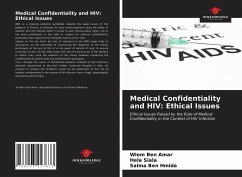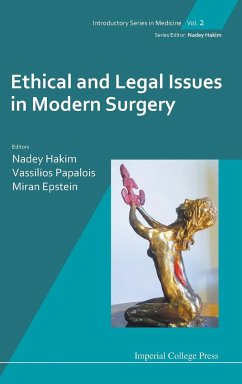AIDS is a growing epidemic worldwide. Despite the weak nature of this epidemic in Tunisia, it continues to raise many questions about the rights of patients with HIV infection when it comes to care. Among these rights, one of the most problematic is the right to respect for medical confidentiality, particularly with regard to the intangible nature of this right.Indeed, on the one hand, the loss of autonomy at the AIDS stage leads to discussions on the possibility of announcing the diagnosis to the family, particularly at the end of life or in the event of refusal of care, to ensure continuity of care. On the other hand, the risk of transmission of the disease to others may raise the question of the choice between respecting the confidentiality of patient data and protecting the population. Thus, through five cases of HIV-infected patients collected at the infectious diseases department of the Hedi Chaker University Hospital in Sfax, we propose to analyse the problems raised by the application of the rule of medical confidentiality in the context of HIV infection from a legal, deontological and ethical point of view.
Hinweis: Dieser Artikel kann nur an eine deutsche Lieferadresse ausgeliefert werden.
Hinweis: Dieser Artikel kann nur an eine deutsche Lieferadresse ausgeliefert werden.








